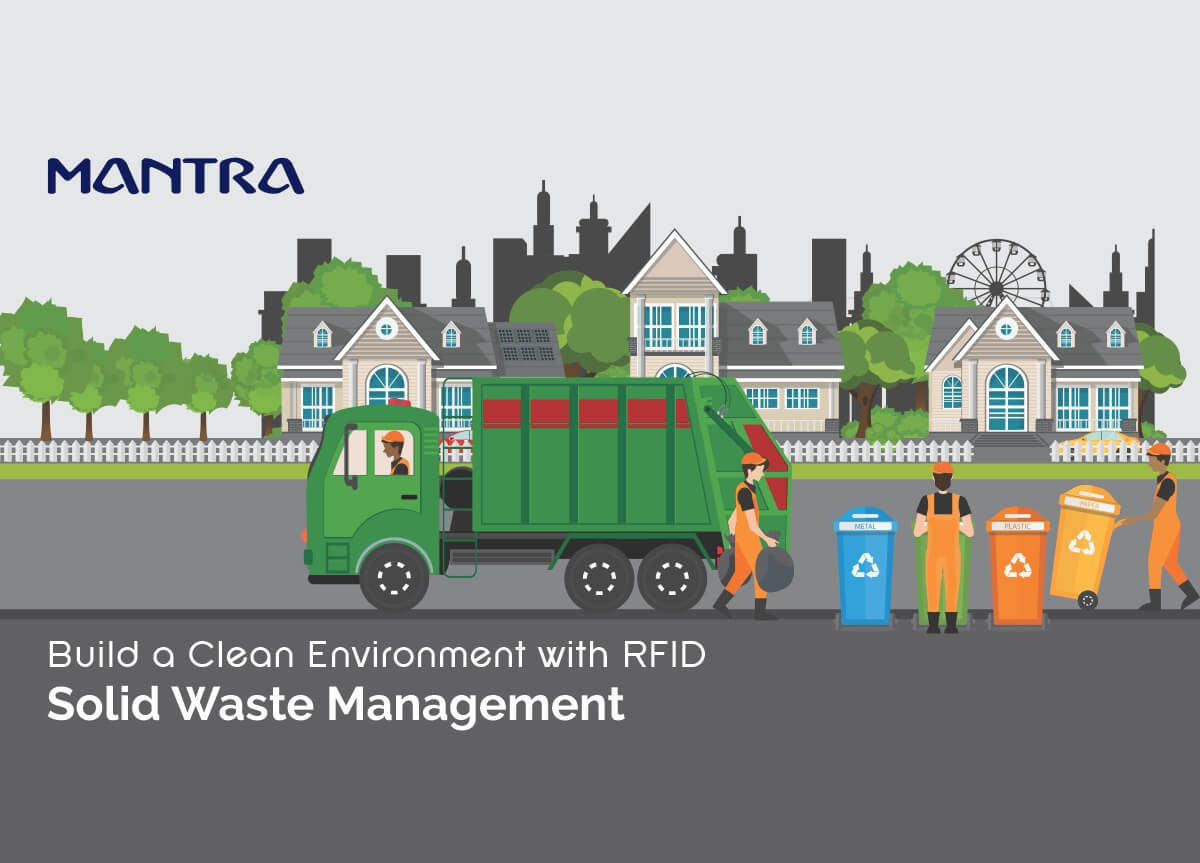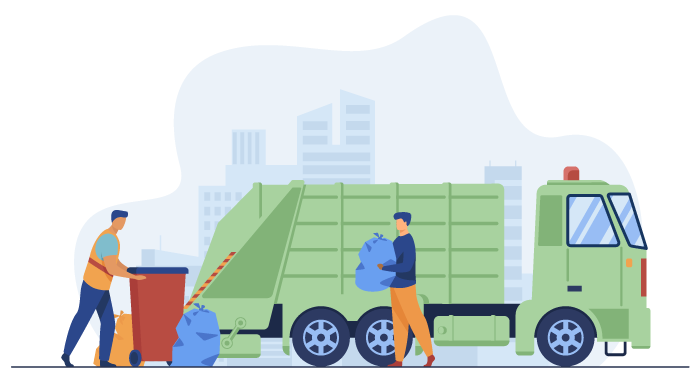
A clean environment for all living beings is the need of the hour since the urbanisation and urban population are increasing rapidly as never before. The improper disposal of daily accumulating household and city wastes is one of the major enemies in keeping cities clean. Many countries have adopted an RFID-based automated solid waste management system that automatically detects the dustbin's filling progress. Automatic solid-waste management systems are an inevitable part of emerging smart cities.
Since solid waste collection, processing and recycling are costly, municipalities or corporations charge a fee for waste management. But that doesn't reduce the amount of waste disposal. In the previous systems, all people have to pay the same amount of money regardless of the amount of trash they throw out; they lack any incentive to try and reduce their waste. Introducing PAYT (Pay-As-You-Throw) to solid waste management can make the people responsible for what they throw and how much they through.
How does PAYT work in RFID solid waste management?
PAYT is a usage-based paying system for solid waste disposal. The system uses RFID technology to quantify the payable amount of waste disposed into a waste bin by measuring the weight of disposed waste. An RFID tag is attached to waste bins with an appropriate sensor that measures the weight or level of waste disposed into a waste bin and recorded to calculate the payable amount.

PAYT solid waste management system can be implemented in numerous ways; the tag can be attached to the bags, and the system will count the trash bags. Some systems charge separate fees for various types of solid waste. There will be separate bins for different sorts of waste, such as food waste, plastic waste, construction waste, medical waste, etc. Such a system will charge separately for each category while helping in waste sorting and recycling. Furthermore, towns can distribute waste containers and bags of varying sizes based on usage.
But the standard PAYT method used by many cities charges the same amount for all. It can not, however, reduce the waste thrown away. If people have to pay more for materials that are not recyclable, the usage of such products and throwaways would gradually decrease. Hence, a solid waste management system can reduce waste throwaways and reduce the consumption of non-recyclable materials.
Examples
The European Union model
The European Union is a pioneer in RFID-based PAYT for eco-friendly solid waste management. In Europe, each household will have an RFID-enabled garbage container. The embedded sensors calculate the exact volume or quantity of waste. Municipalities charge each family based on the amount of waste they produce. The method has proven to be an effective policy strategy for reducing overall waste and encouraging recycling. Several cities in the United States have adopted the same policy.
The Seoul model: A Korean city model
The capital city of South Korea generates 9,189 tonnes of municipal solid waste per day. However, it has one of the most efficient solid waste management systems. The waste collection and disposal in the city are divided into categories: domestic waste, food waste, business waste, public purposes, and construction debris. They charge for certain types of waste, including food and clinical waste, using the PAYT system. And the cost varies depending on the kind of waste.
They use RFID chips to identify the type of waste during the collection. The volume of payable wastes is estimated using a sensor implanted with RFID tags for the PAYT policy, while recyclables are collected for free.
Closing note
RFID solid waste management system is here to assist our system build an eco-friendly environment and reducing urban life's hassles. To discuss the other possibilities and implementation of the technology, feel free to contact us at our tel: +91-079-49068001 or fill out the inquiry form.
Mia Evans
It's interesting to know that there is a fee for waste management in municipalities and corporations, because the collection of the items as well as recycling them can be at a cost. I guess that means that construction waste removal can also have a certain amount that we need to prepare for if we need such services for our property. We would have a renovation for the whole house to make it more modern, so we definitely need professionals to dispose of debris and other items for us to prevent issues in the neighborhood.
ReplyMillie Hue
I love that you talked about how the waste management system of South Korea has been able to handle 9,189 tonnes of municipal garbage efficiently, and this is done per day. I hope that the trade waste systems all over the globe would be following that practice for the betterment of our planet. With the effects of global warming and climate change, I can imagine how everyone of us already has to do our part in ensuring that we don't add to the damage that our planet has already been experiencing by handling our trash better.
ReplySteve Smith
I like the tip you gave that using trash bags and bins could be an efficient way to implement proper waste management. A few nights ago, my brother informed me he was planning to use a waste management solution to have an environment-friendly trash collection for their Taco restaurant. He asked if I had any other idea what would be the best option to consider. I'm thankful for this instructive article, I'll tell him they can consult a well-known waste management service as they can provide details about the waste management process.
ReplyNancy
Outstanding publications. I absolutely appreciate how much knowledge can be found here.
Reply